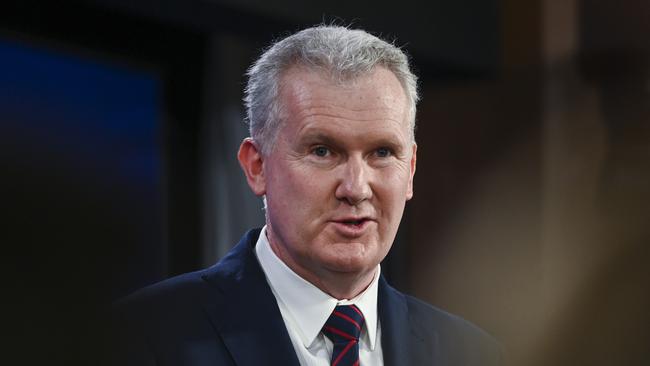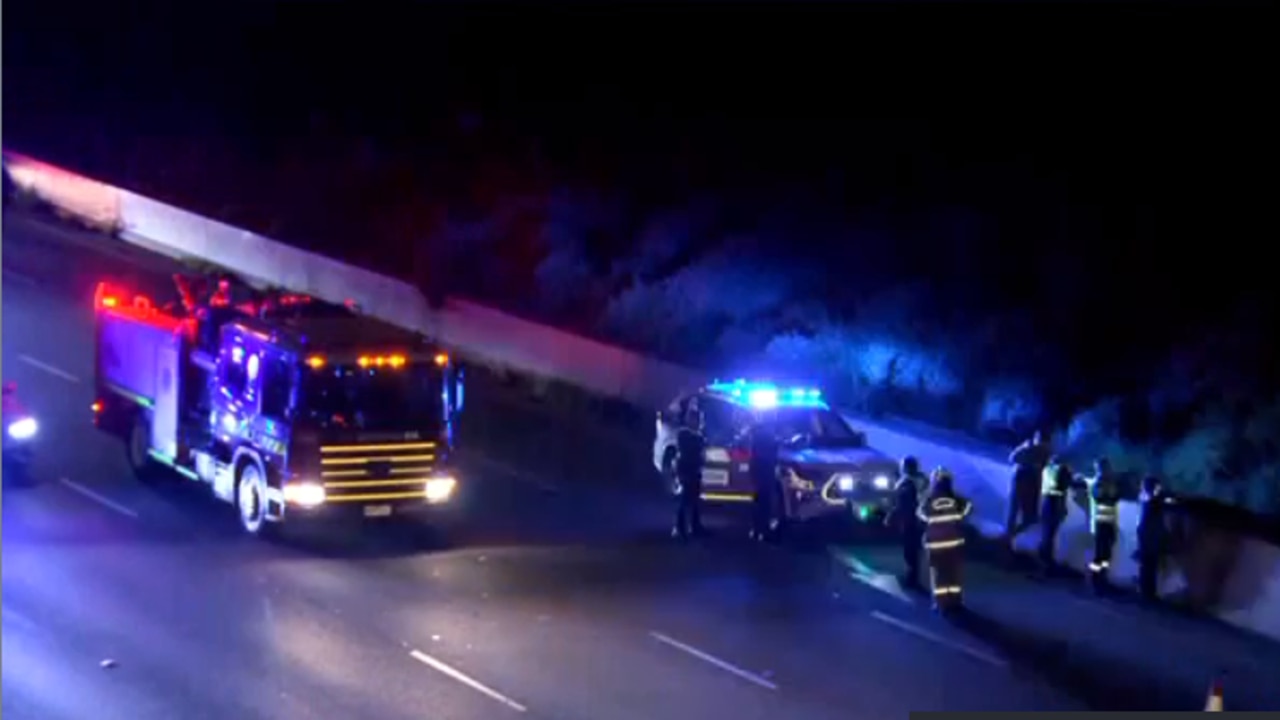Negligent or reckless federal public servants face 25 years’ jail under industrial manslaughter laws
The maximum penalty could apply to senior officers of a government department under federal plans to criminalise industrial manslaughter.

Negligent federal public servants found responsible for the death of a worker could be imprisoned for up to 25 years and commonwealth departments fined up to $18m under federal plans to criminalise industrial manslaughter.
Under changes in the Closing Loopholes bill to be tabled in federal parliament on Monday, Workplace Relations Minister Tony Burke will make industrial manslaughter a crime under the commonwealth’s work health and safety laws.
While most states have legislated industrial manslaughter, the federal government will act on the 2018 Boland review and introduce a new offence that would apply where the gross negligence or recklessness of a duty holder leads to a workplace death.
Under the proposed changes, to operate from July next year, individuals will face a maximum penalty of 25 years imprisonment if convicted of industrial manslaughter, and body corporates face fines of up to $18m.
Monetary penalties for the Category 1 offence, which applies when a work health and safety duty is recklessly or criminally negligently breached, will be increased from $3m to $15m for body corporates.

The imprisonment penalty will be increased from five years to 15 years, while fines for other offences in the Work Health and Safety Act will be increased.
Mr Burke said it was imperative that fines acted as a deterrent, ensuring employers and businesses were aware of their responsibilities “to do everything in their power to keep workers safe”.
He said criminalising industrial manslaughter would make workplaces safer.
“Every worker should be able to go to work knowing they’ll come home safely,” he said. “But so far this year, 91 workers have been fatally injured in the workplace. That’s 91 too many. People go to work to give themselves a life. That work should never take away a life.”
Eric Windholz, senior lecturer at Monash University’s faculty of law, said “there are scenarios where you could find individuals being prosecuted”.
“The fact that they are talking about imprisonment means that the legislation will have the scope to apply to an individual whose individual acts are considered to be so grossly negligent to warrant criminal punishment,” Dr Windholz said.
“Clearly, they’re contemplating a possibility of individuals being imprisoned. That’s a possibility that a senior officer of a government department, and maybe not such a senior officer if it’s gross negligence by someone at the coalface, could find themselves potentially in that position.
“The more the commonwealth and government per se gets involved in service delivery, the more chances there are.”

University of Adelaide law professor Andrew Stewart said the federal health and safety act also applied to some private sector businesses.
“I really do think this is (the federal government saying) ‘we can’t really be expecting the states to be moving on the Boland recommendations and introducing industrial manslaughter if we then say well we as an employer are not going to be subject to those same rules and those same sanctions’,” he said. “I’m pretty sure it’s a question of consistency.”
Meanwhile, the dispute between Chevron and unions is heading to mediation before the Fair Work Commission, opening the prospect of a settlement before industrial action next week.
Chevron applied for mediation after union members at the company’s Gorgon and Wheatstone downstream gas processing facilities in Western Australia rejected an enterprise agreement not endorsed by union negotiators.
Protected action ranging from work bans to stoppages of work has been endorsed by members and is due to start next Thursday.








To join the conversation, please log in. Don't have an account? Register
Join the conversation, you are commenting as Logout